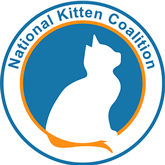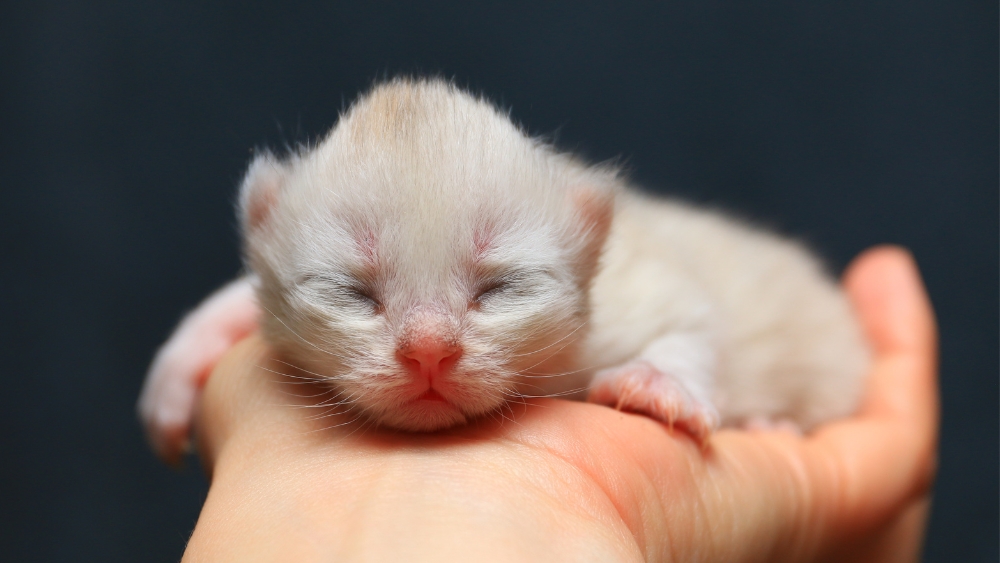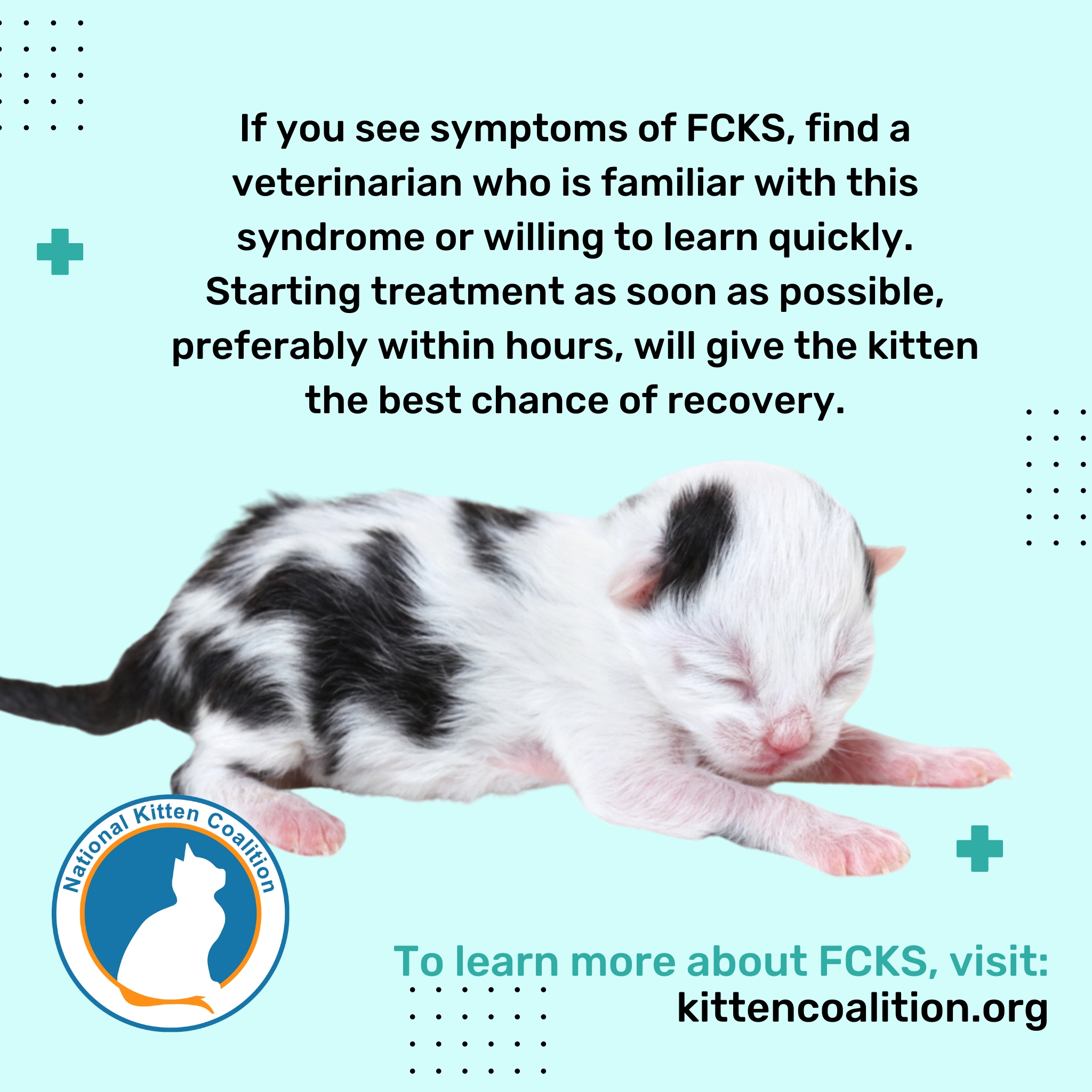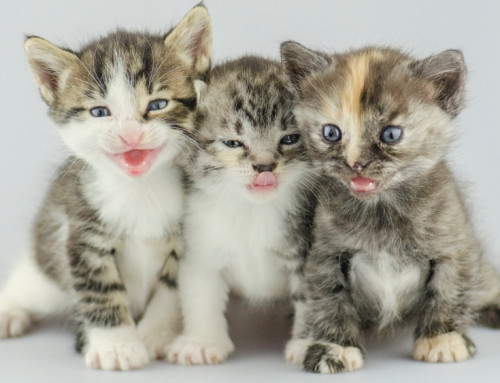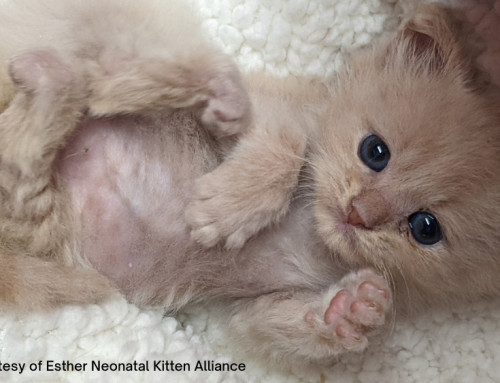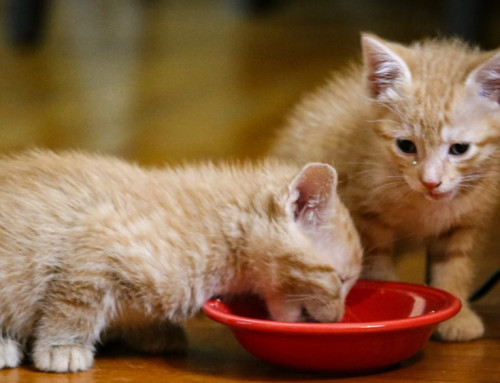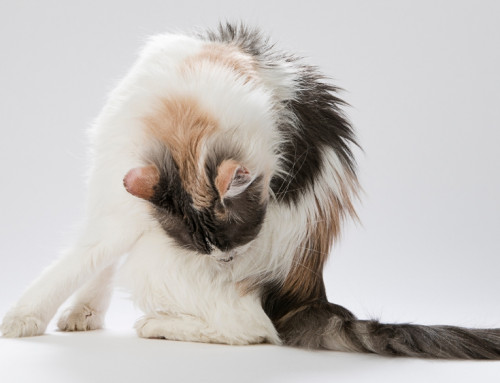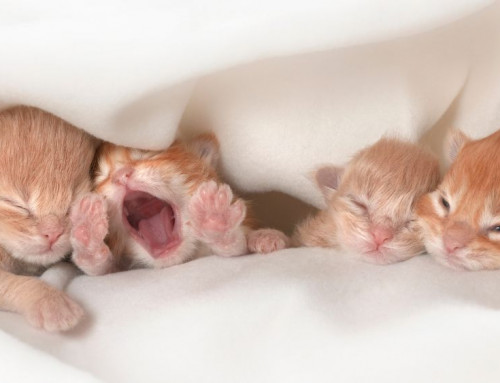Share this resource or email it to a friend!
Flat chested kitten syndrome (FCKS) is a poorly understood, often serious condition that may develop in a matter of hours in a kitten less than ten days old. In kittens with FCKS, the muscles used in suckling and breathing cause a deformity of the chest, which results in discomfort and problems in suckling and breathing.
Normally, a kitten’s chest appears oval-shaped in cross-section. In FCKS, the front of the rib cage has more of a flattened or pointed shape in cross-section. FCKS and pectus excavatum (PE) may occur at the same time. However, PE affects the sternum (breastbone) and costal cartilages that connect the sternum to the ribs; FCKS affects the whole rib cage resulting in a dorsoventral (extending from the back to the belly) flattening of the thoracic cavity. Swimmer syndrome kittens can also have flat chests, but it is unclear whether this is cause or effect of flat chested kitten syndrome.
The reasons a kitten develops FCKS are not clear. Beyond genetics (that is, the increased chance of FCKS in some cat breeds), theories involve chest muscle weakness, diaphragm abnormalities, nutritional deficiencies or environmental stressors.
FCKS tends to be more serious if it affects more than one kitten in a litter; the larger kittens in the litter are more likely to be affected. FCKS is more likely in certain pedigreed cats, such as Burmese or Bengals.
FCKS symptoms will depend on its severity. Kittens will be less active and more likely to swallow air, which creates discomfort and reluctance to suckle. As a result, they can fail to gain weight or even lose weight, and breathing problems can turn into pneumonia. The prognosis is worse in kittens who also have poor development of their lungs and heart.
Closely observe kittens for the following clinical signs of possible FCKS:
- Flattening of the front of the chest
- Protruding of the elbows or lateral splaying of the forelimbs
- Failure to thrive
- Inability to gain weight as rapidly as littermates
- Open mouth breathing
- Panting
- Using abdominal muscles to assist in breathing
- Lethargy
- Failure to latch/suckle
If you see symptoms of FCKS, find a veterinarian who is familiar with this syndrome or willing to learn quickly. Starting treatment as soon as possible, preferably within hours, will give the kitten the best chance of recovery.
Kittens with FCKS often cannot obtain adequate nutrition on their own. The mainstay of treatment should consist of nutritional supplementation as weight maintenance and weight gain are the key factors in surviving FCKS. Splinting the chest cavity, often with a toilet paper roll and gauze, can help the rib cage grow in the correct/normal shape. Gentle massage and passive range of motion of limbs will help prevent soreness and encourage proper growth. Under the direct supervision of a veterinarian, a medication to help alleviate a kitten’s discomfort may be administered, as well as an antibiotic or steroid if secondary pneumonia exists.
Especially with massage and splints, treatment will need to be supervised by a veterinarian and may need to be adjusted if the kitten struggles to breathe or nurse. In addition, although a sleeping kitten may be fine with a splint, it may need to be removed when the kitten is moving around and trying to take deeper breaths.
Opinions differ on whether supplying oxygen to a kitten with FCKS is helpful or harmful, so this treatment should only be considered with expert advice.
The prognosis for a kitten with FCKS varies from spontaneous recovery in the best case to death in the worst case. Some cases respond to treatment very quickly or even resolve on their own.
After they make it through the crucial first few weeks with adequate weight gain, FCKS kittens will ideally have happy and healthy lives. More research is definitely needed, which will hopefully be available as awareness of FCKS increases.
